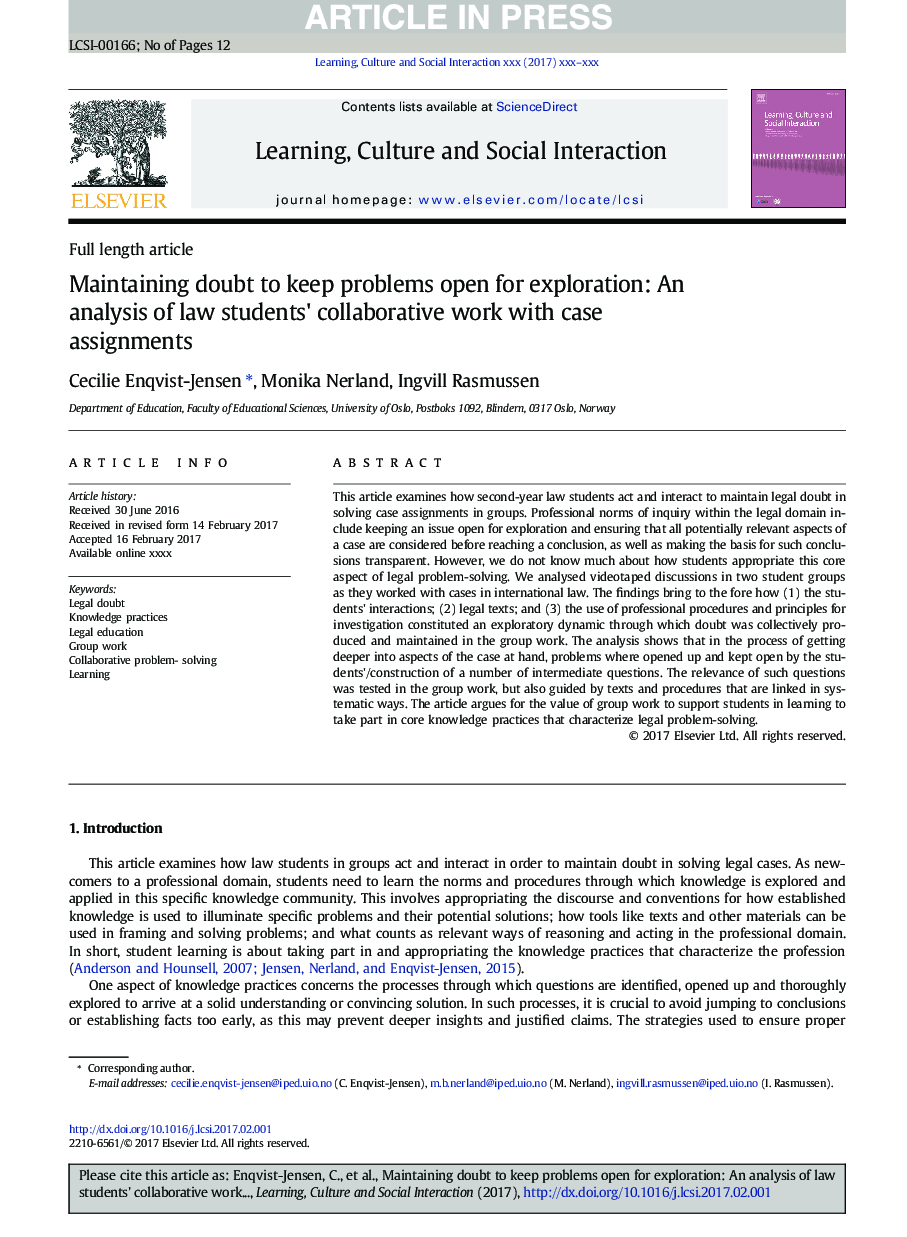| Article ID | Journal | Published Year | Pages | File Type |
|---|---|---|---|---|
| 4939910 | Learning, Culture and Social Interaction | 2017 | 12 Pages |
Abstract
This article examines how second-year law students act and interact to maintain legal doubt in solving case assignments in groups. Professional norms of inquiry within the legal domain include keeping an issue open for exploration and ensuring that all potentially relevant aspects of a case are considered before reaching a conclusion, as well as making the basis for such conclusions transparent. However, we do not know much about how students appropriate this core aspect of legal problem-solving. We analysed videotaped discussions in two student groups as they worked with cases in international law. The findings bring to the fore how (1) the students' interactions; (2) legal texts; and (3) the use of professional procedures and principles for investigation constituted an exploratory dynamic through which doubt was collectively produced and maintained in the group work. The analysis shows that in the process of getting deeper into aspects of the case at hand, problems where opened up and kept open by the students'/construction of a number of intermediate questions. The relevance of such questions was tested in the group work, but also guided by texts and procedures that are linked in systematic ways. The article argues for the value of group work to support students in learning to take part in core knowledge practices that characterize legal problem-solving.
Related Topics
Social Sciences and Humanities
Psychology
Developmental and Educational Psychology
Authors
Cecilie Enqvist-Jensen, Monika Nerland, Ingvill Rasmussen,
